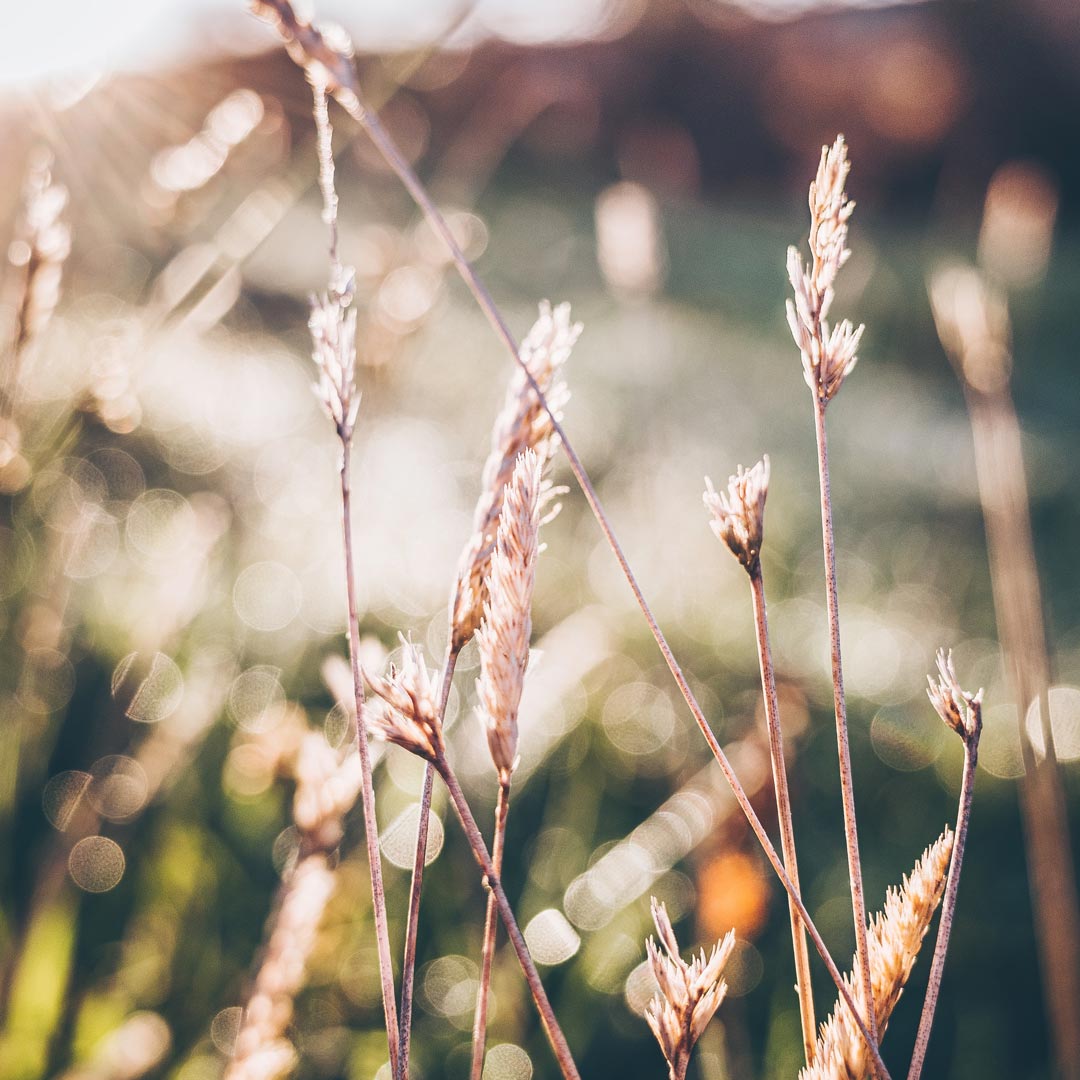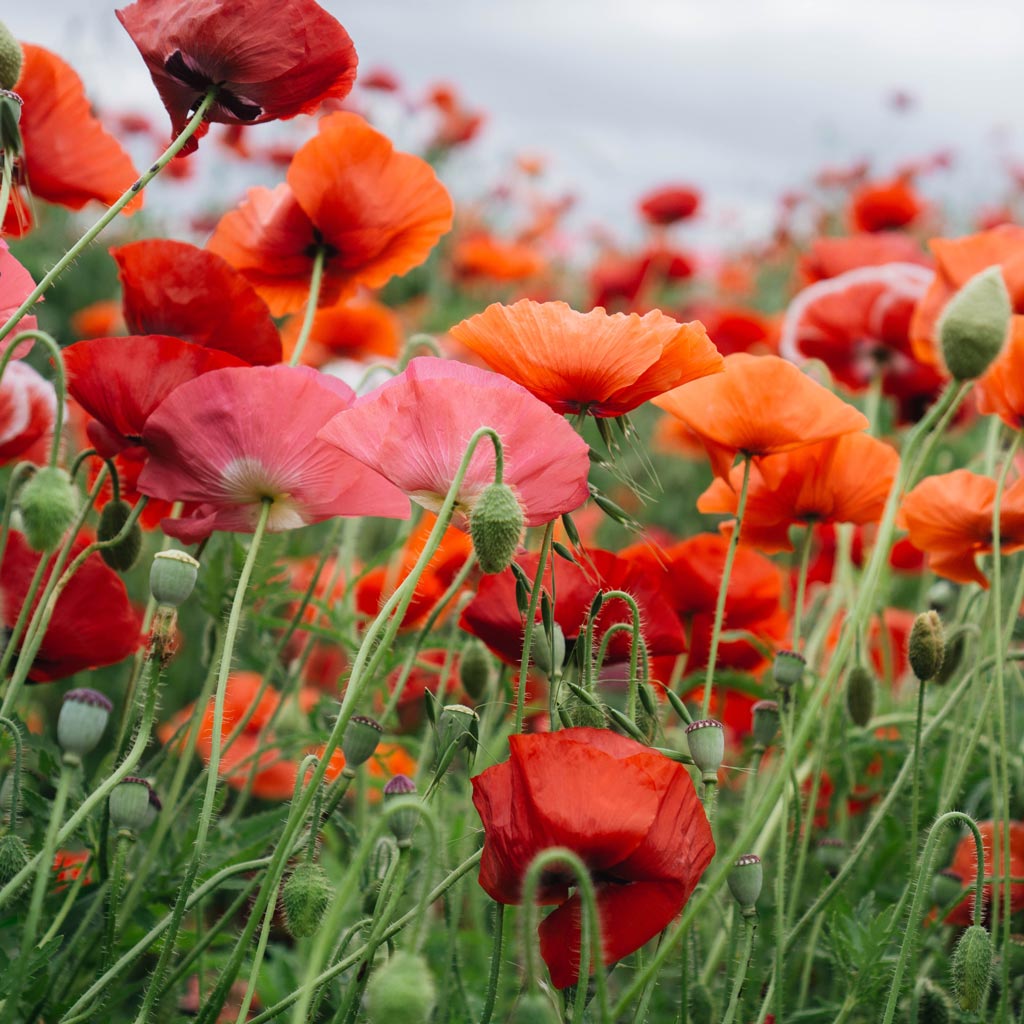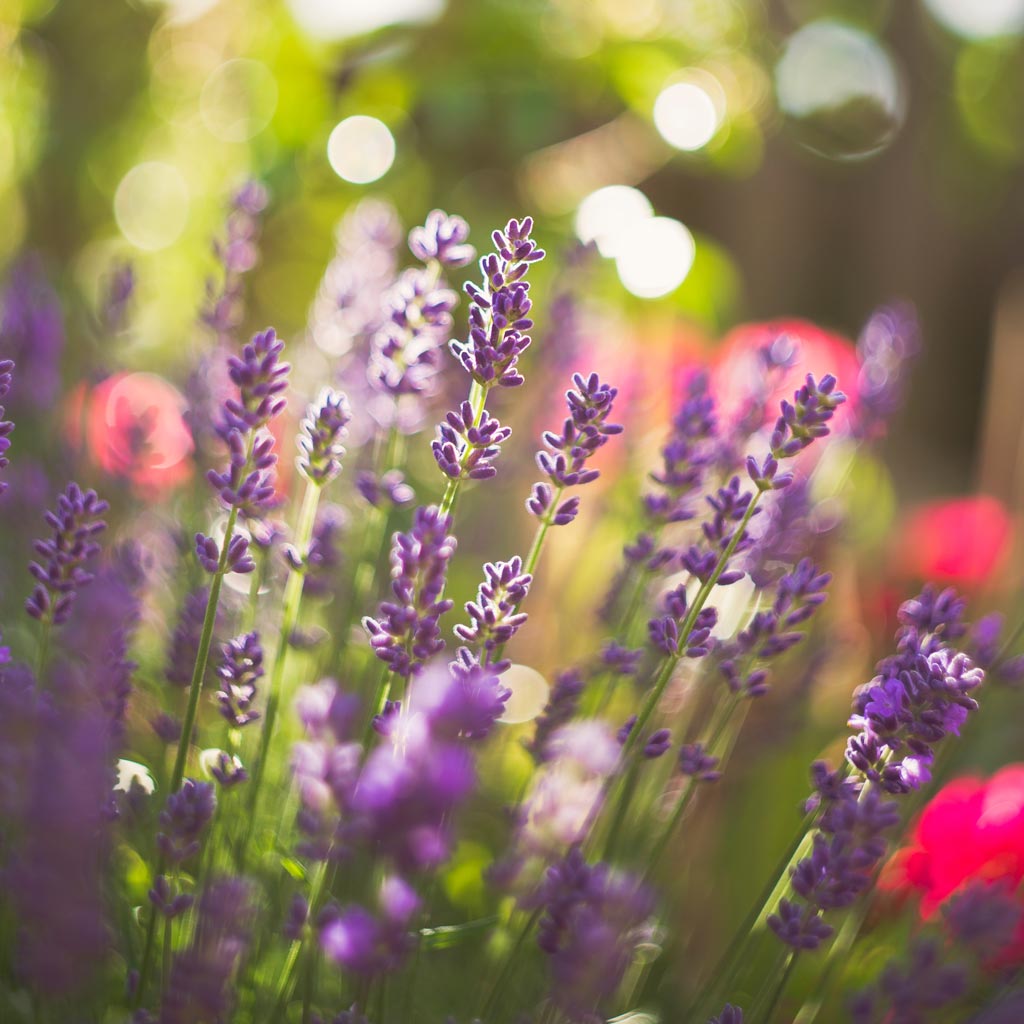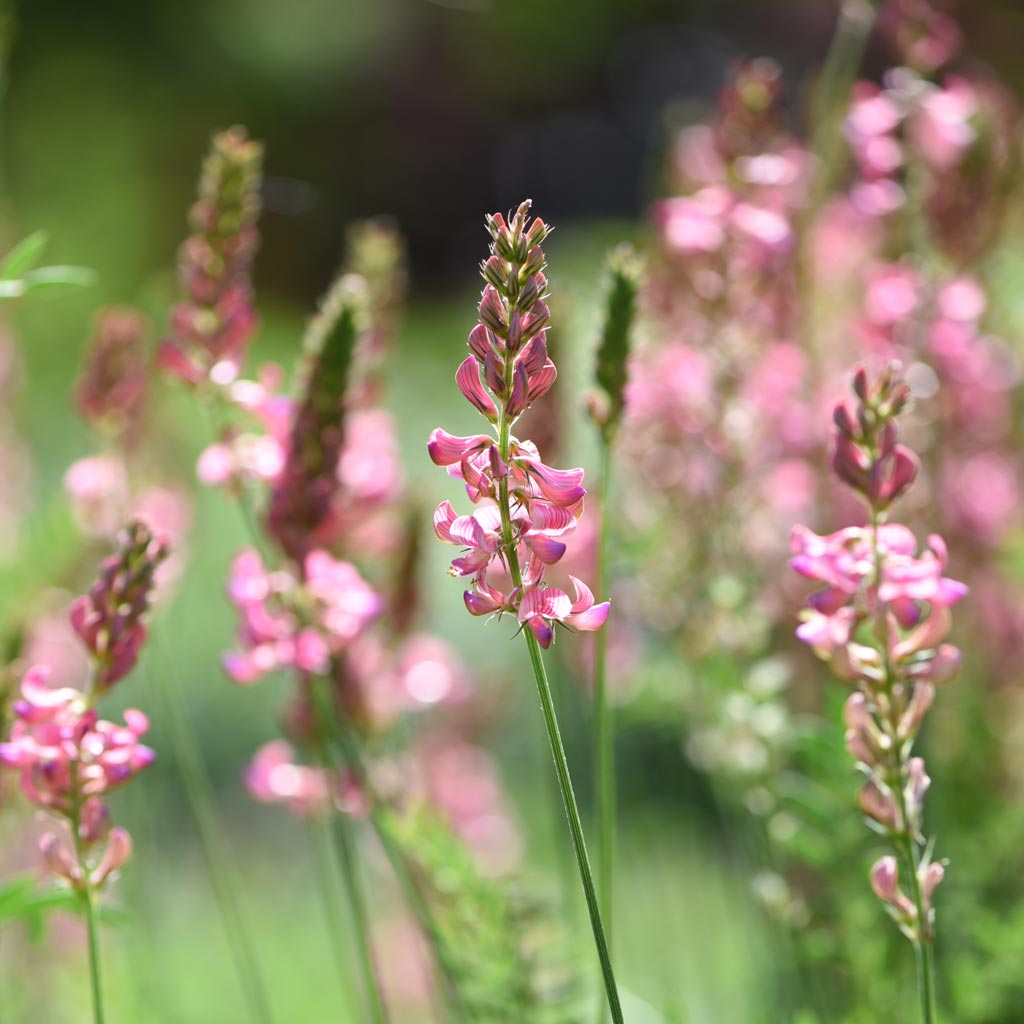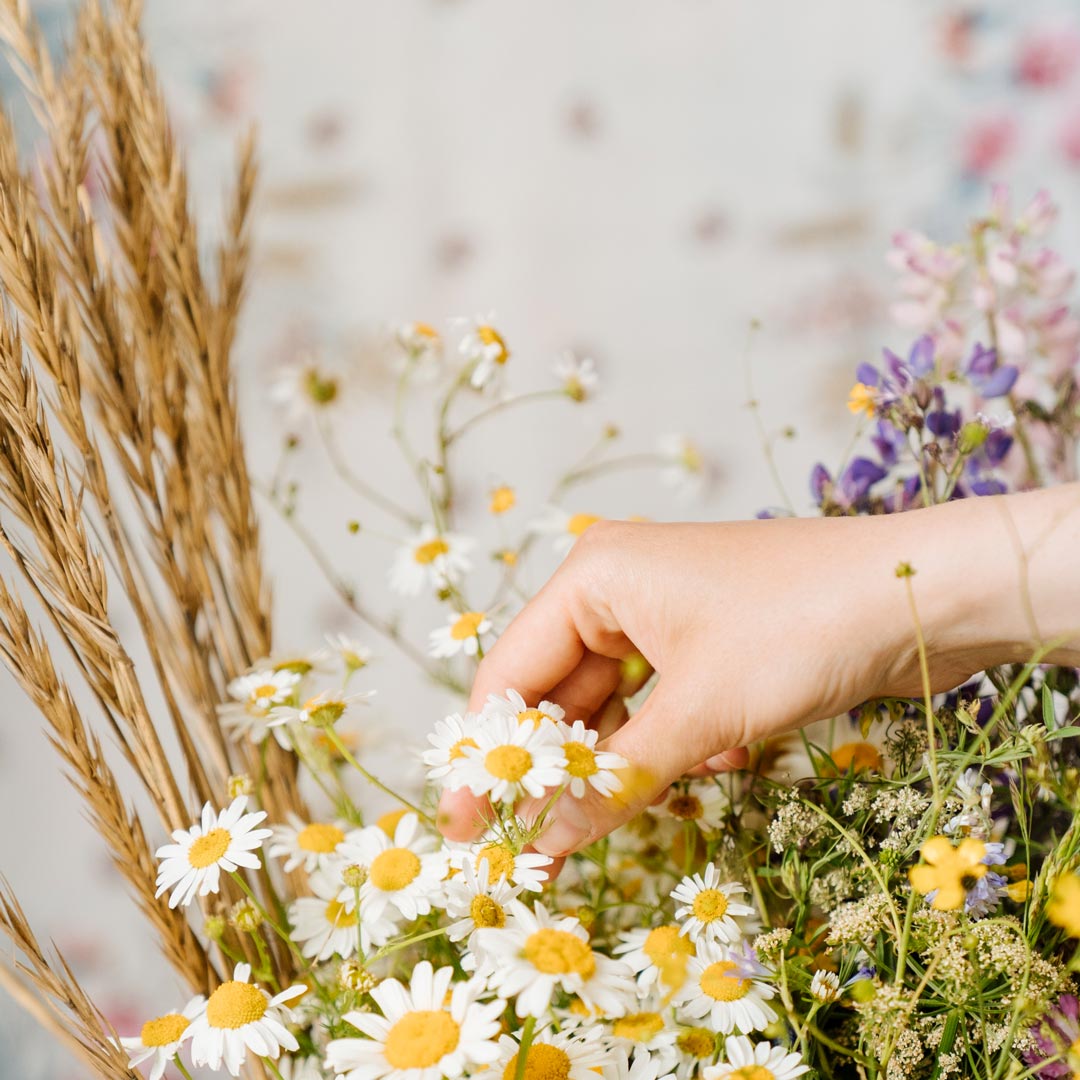
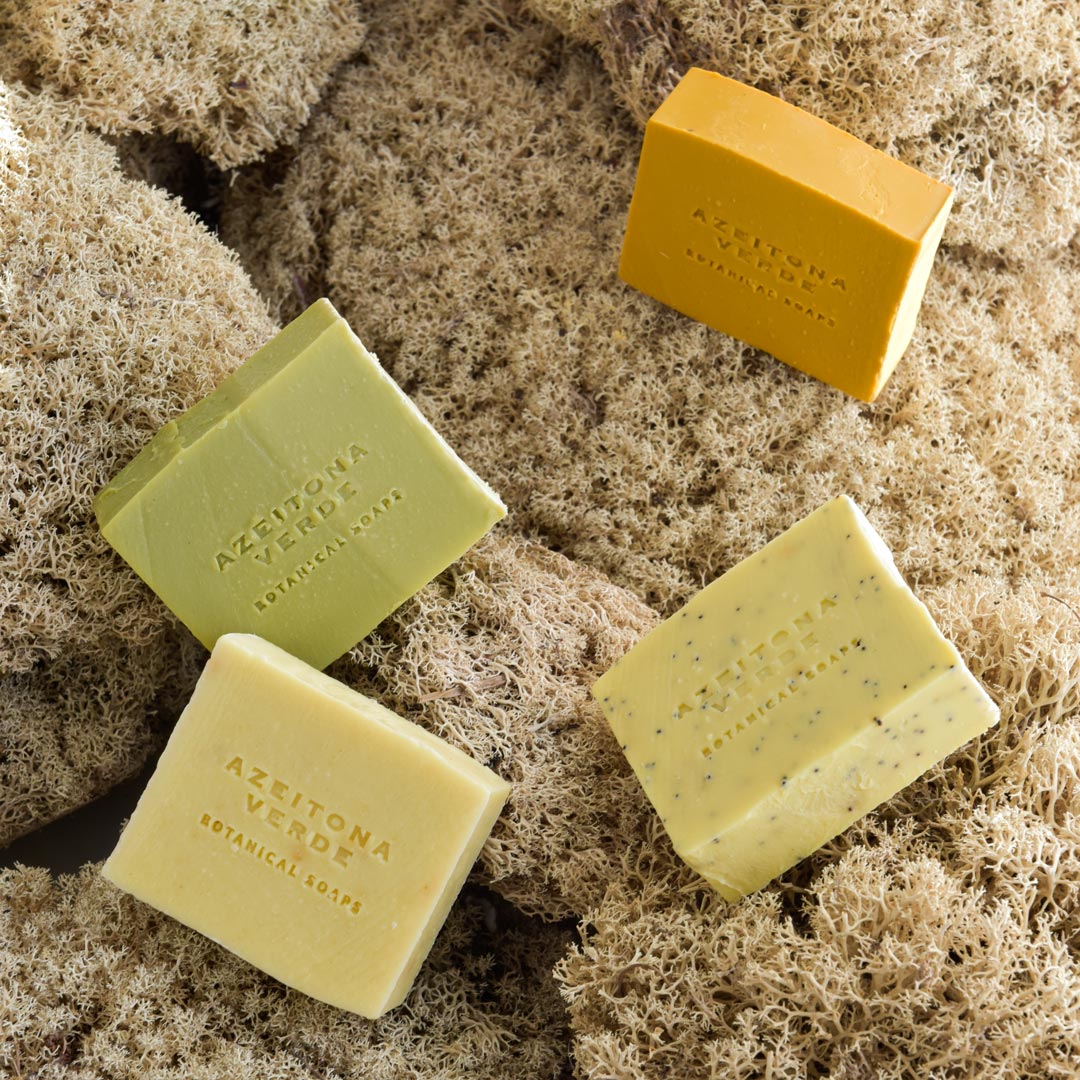
Botanical collection
A Botanical Ingredient is a component of a cosmetic or personal care product originating from plants (herbs, roots, flowers, fruits, leaves or seeds).
Our soaps are produced from plant products; their main ingredient is the oil that comes from the juice of the olive, fruit of the olive tree, followed by essential oils extracted from plants.
100% vegan and natural
Their delicate formulae were developed through the meticulous combination of our organic olive oil Azeitona Verde with natural aromatic oils, combining antioxidant and regenerative properties. Our soaps provide highly nourishing, moisturizing and soothing properties to our skin (face, body and hands) while contributing, in a natural way, to enhance a healthy appearance. They restore the skin’s elasticity and prevent ageing.
Treat yourself to a true aromatherapy treatment in your own home!
These soaps are ideal for enjoying a relaxing and enveloping bath or stimulating shower due to the natural aromas of the selected plants.
Ingredients
The Organic Olive Oil
Early civilization soon discovered that olive oil was an excellent emollient and moisturizer for the skin, good for pain relief, for massages, bathing and to give hair an extra shine. From here, it was a tiny step to the combination of olive oil with aromatic essences and ashes and the making of the first soaps.
Extra virgin olive oil acts on the skin in the same way as substances secreted by our grease-producing glands. It forms a film over the skin making it soft, hydrated and more elastic without any oily excess suppressing any extra dryness. This may happen when using unsuitable oils. Olive oil is suitable for dry, normal and mixed skins and highly recommended for dry skin due to its anti-inflammatory properties.
It is not recommended for very oily skin with proneness to the formation of pimples.
Essential Oils
Glycerine
Sodium hydroxide (NaOH)
Organic Chestnut Flour
They are rich in potassium, Vitamin C, B, and help to relieve stress.
Gluten-free
Chlorella
Chlorella is freshwater-algae packed with a superior green pigment known as chlorophyll. Chlorophyll is the pigment which makes plants green and healthy and is rich in vitamins A, B, and C.
It promotes the production of collagen which improves the skin.
Organic Poppy Seeds
Rich in omega-3, minerals, fibres and vitamins. They also have calming properties.
Iron Oxide
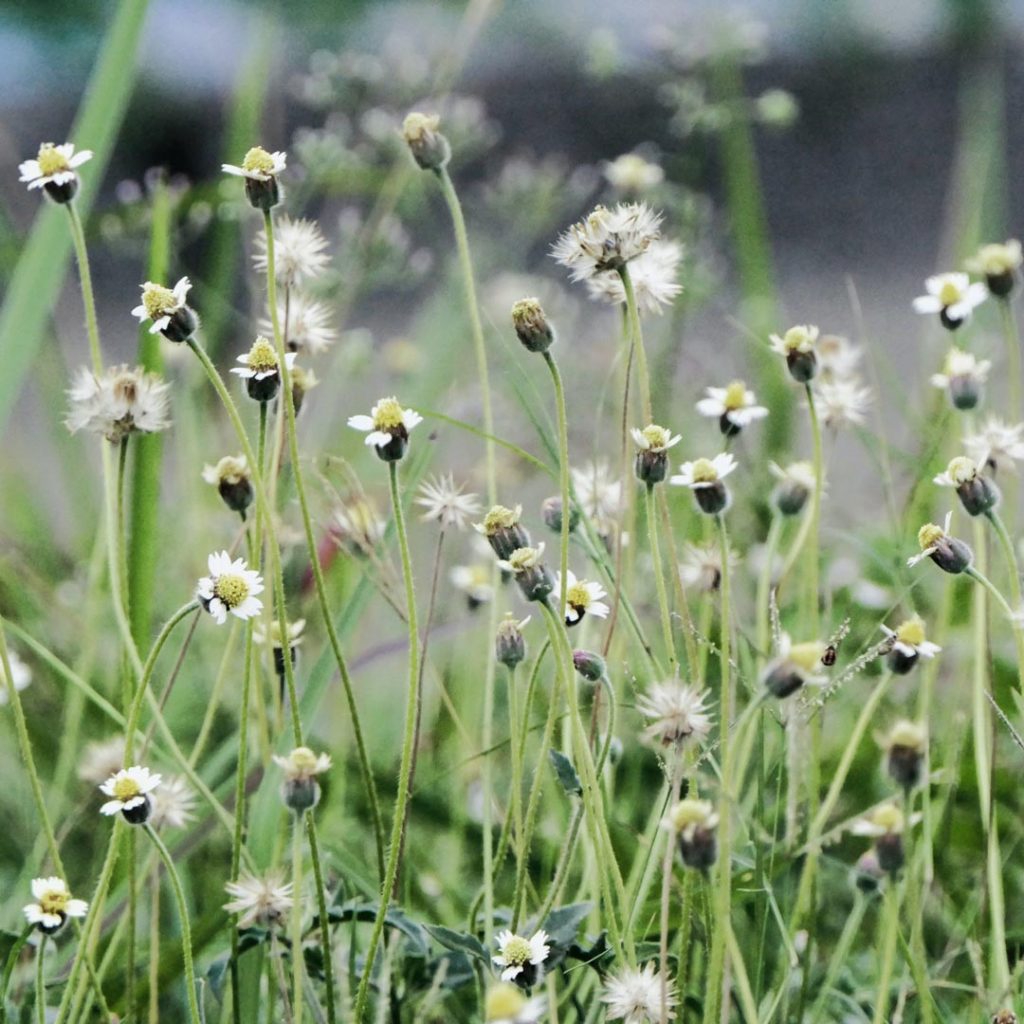
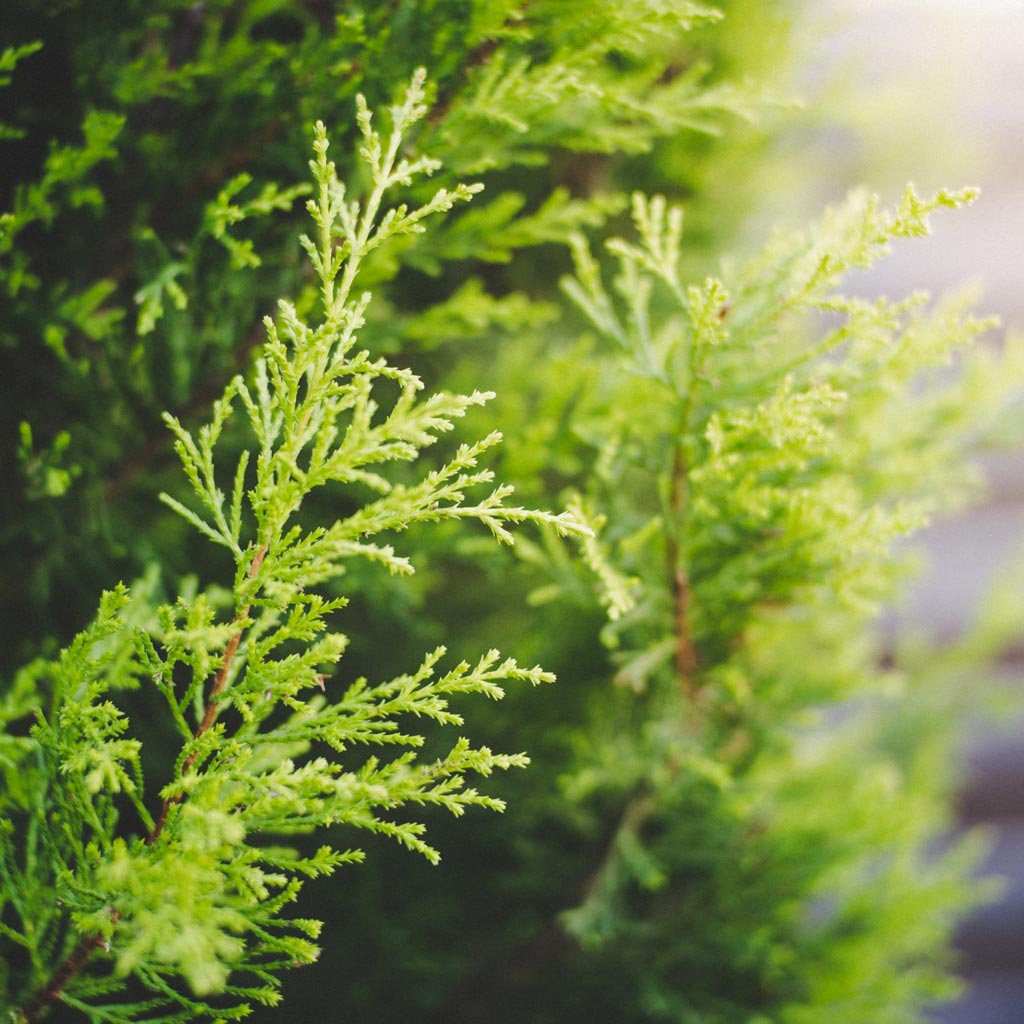
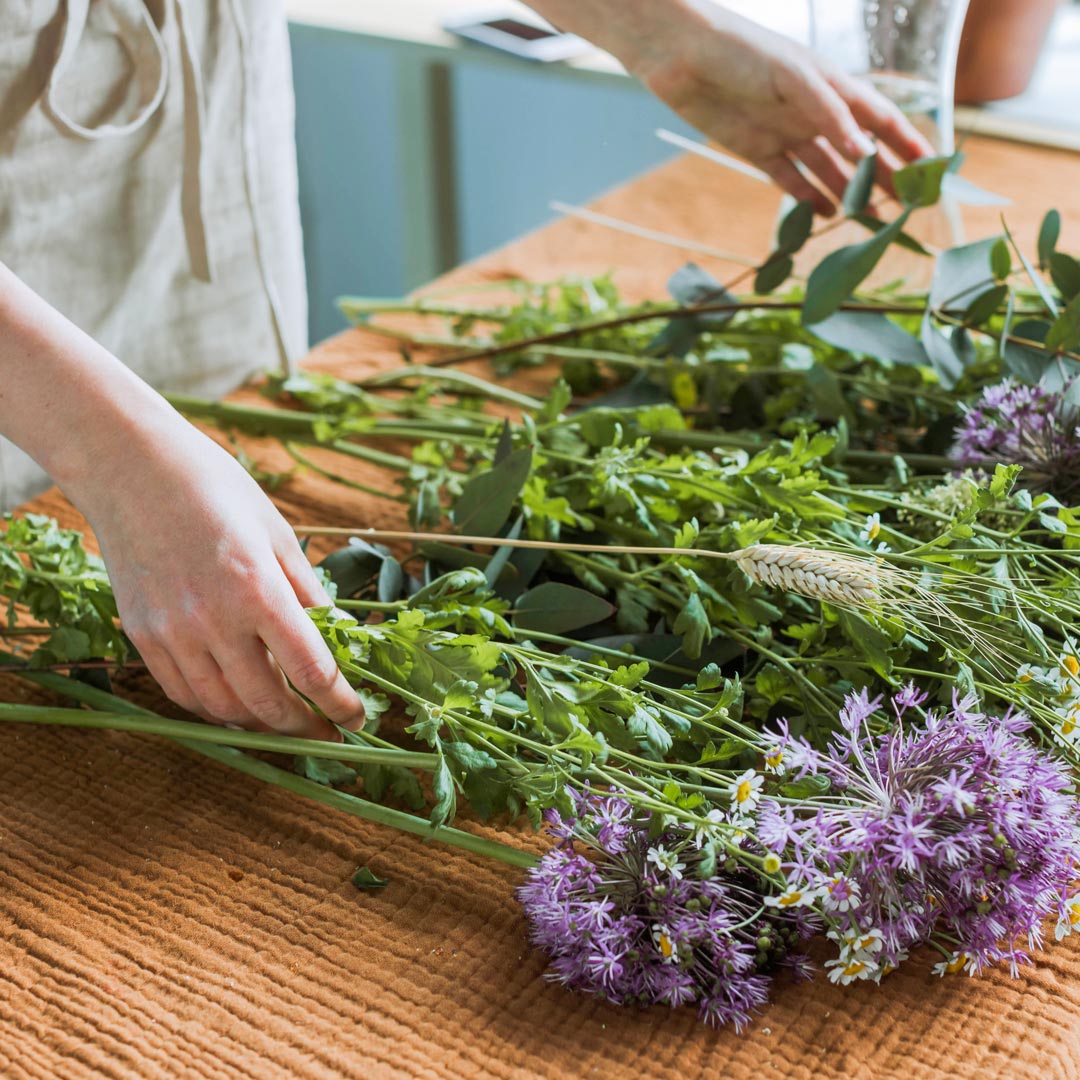
Every soap was created to immerse you in the restorative peace of our fields.
Process
The way this reaction is carried out will define whether the process is carried out with or without the use of temperature.
Cold Saponification
Our cold soap making process takes place at a temperature just above room temperature, ensuring the non-destruction of the properties of olive oil and essential oils through exposure to high temperatures. This process brings antioxidants and vitamins to the skin.
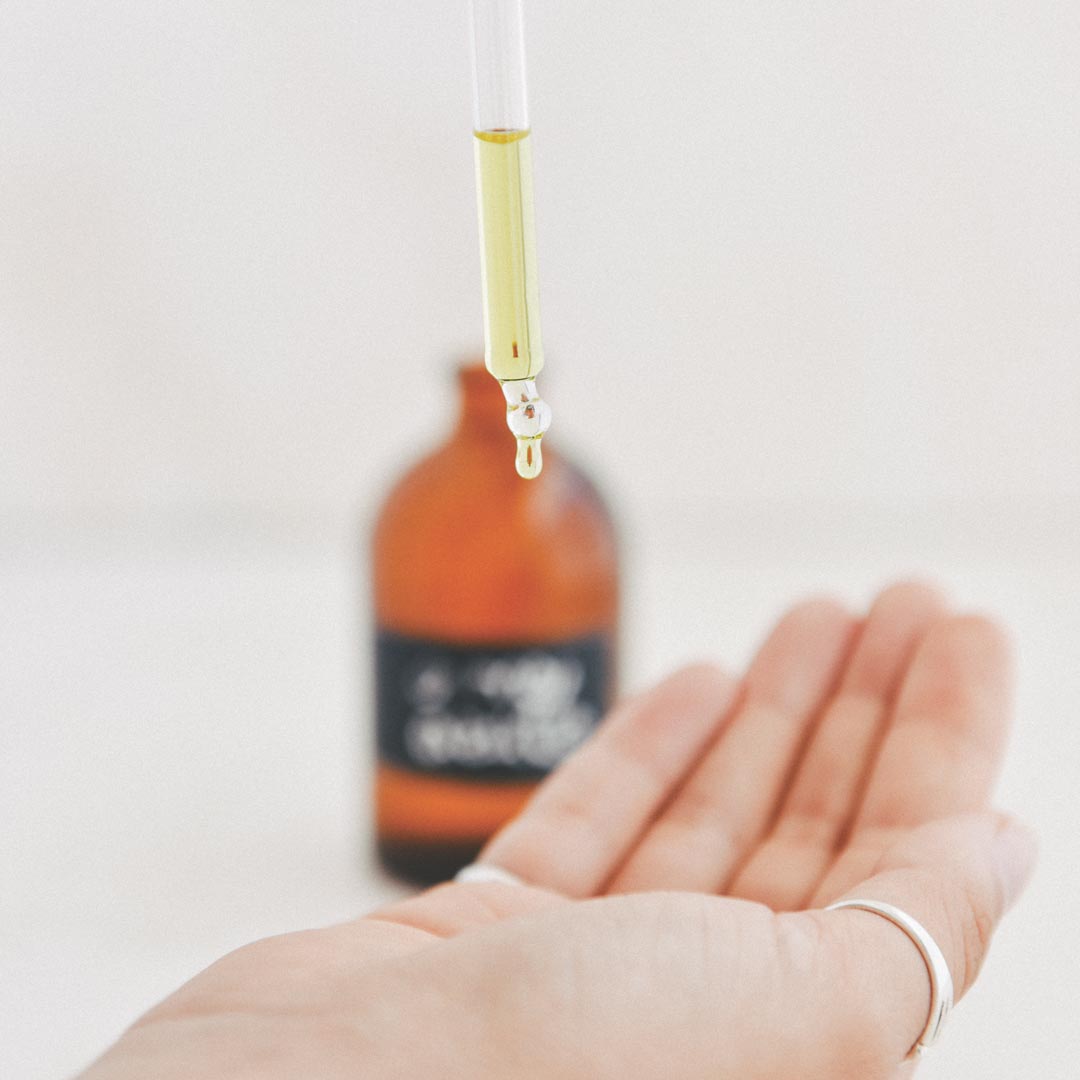
Safety
The Azeitona Verde Botanical Soap collection was submitted to the Cosmetic Product Notification Portal (CPNP), the notification system for cosmetic products created for the implementation of Regulation (EC) No. 1223/2009 of the European Parliament and European Council.
Infarmed
The collection of Azeitona Verde Botanical soaps complies with the legislation applicable to cosmetic products as well as with the provisions of Resolution no. 15 / CD / 2013.
The manufacture of cosmetic products, regardless of the type of manufacture (Decree-Law No. 169/2012 of August 1, verbatim) and including what is done in artisanal production units (Decree-Law No. 41/2001, of 9 February) must comply with European and national legislation.
Therefore, only cosmetic products that prove to be safe and comply with the legal requirements established by Regulation (EC) No. 1223/2009 of the European Parliament can be placed on the market and of the Council, of November 30, 2009, and by Decree-Law no. 189/2008, of September 24.
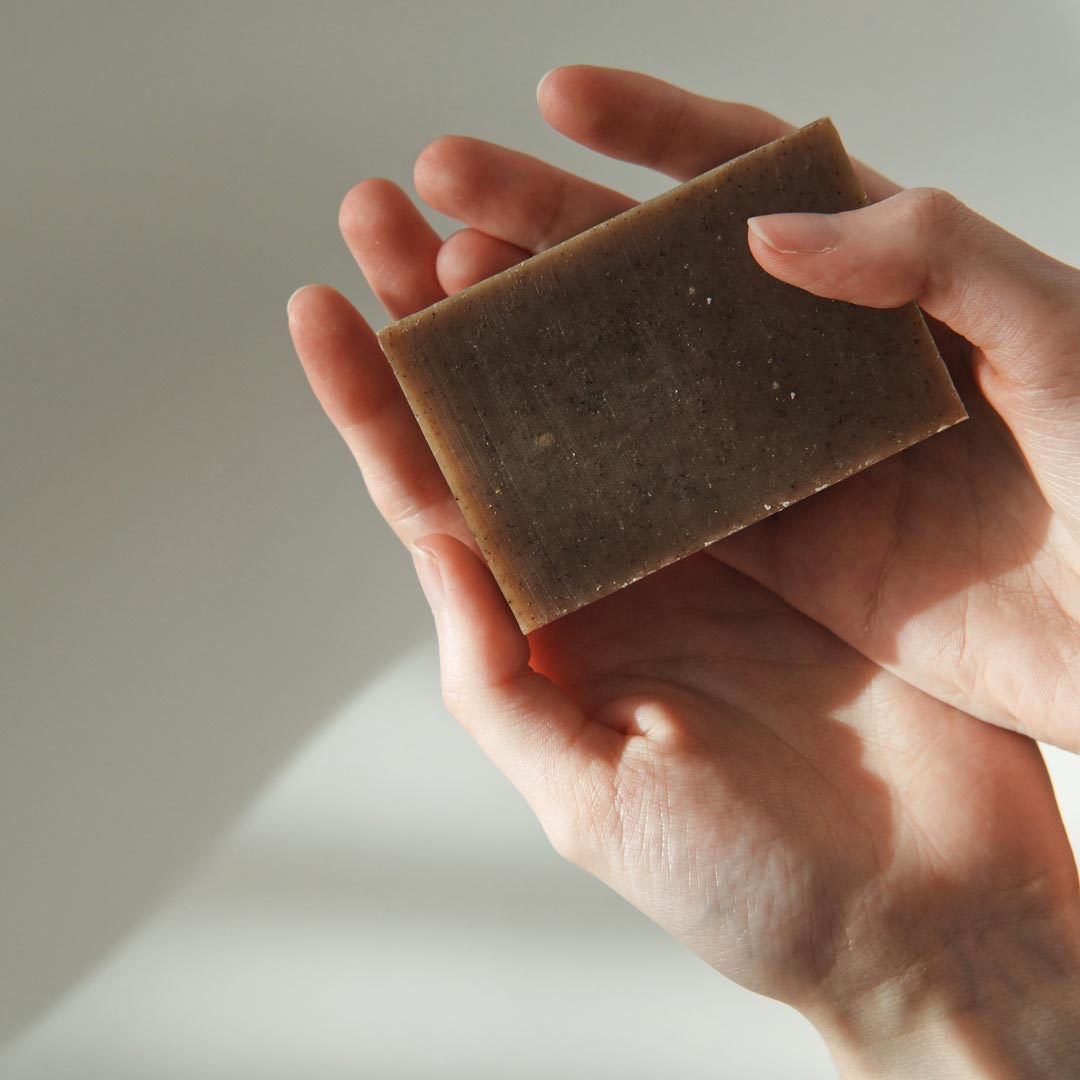
We say No to:
Sodyum Lauryl Sulfate (SLS):
Sodyum Lauryl Sulfate (SLS):
Sodium Lauryl Sulfate (SLS) is a common detergent and foaming agent and is precisely the same product that is used to clean, for example, our cars. It is found in personal care products, such as toothpaste, shampoos and soaps. Technically, (SLS) is a surfactant, a surface-acting agent and has emulsifying properties.
Alternative names
- Steol-130, 230, 270, 330, 370 or 460
- Stepanol
- Alkyl Ether Sulfate
- Sodium POE (2) Lauryl Ether Sulfate
- Sodium Diethylene glycol Lauryl Ether Sulfate (SDGLES)
- Sodium Lauryl Ether Sulfate (SLES)
- Surfax EVE
- ALKOPON
- Innoless LE-70

